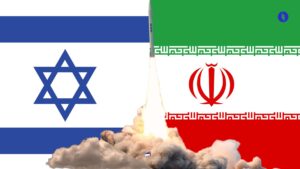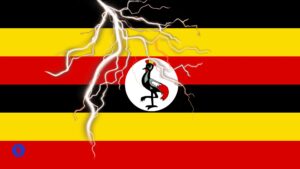An Israel-Hamas truce is hanging in the balance right now. Here’s what you need to know.
Following weeks of negotiations among US, Egyptian, and Qatari mediators, word emerged from US officials over the weekend that Israel has now “more or less” accepted a deal.
The full details aren’t yet public, but the deal sounds similar to the one agreed between Israel and Hamas in November, including a six-week ceasefire while:
Stay on top of your world from inside your inbox.
Subscribe for free today and receive way much more insights.
Trusted by 129,000+ subscribers
No spam. No noise. Unsubscribe any time.
- Hamas releases vulnerable Israeli hostages (the sick, wounded, elderly)
- Israel releases (unspecified) Palestinians held in Israeli prisons, and
- Israel allows a ramping up of international aid into Gaza.
But ~36 hours before mediation talks were due to resume in Cairo, the Hamas armed wing in Gaza made unverified claims that as many as 70 of the ~130 remaining Israeli hostages have now been killed by Israel’s military response. Hamas also seemed to suggest that the “price” it will take for Israeli hostages remains unchanged.
Then, another Hamas source again told media yesterday (Sunday) it wouldn’t share any hostage details unless Israel agrees to permanently end the war – a non-starter for Israel, which says it’ll keep going until Hamas is dismantled.
So Israel, citing a lack of Hamas responses to its requests – for a list of living Israeli hostages, the names of hostages to be released, and the names of Palestinians that Hamas wants released – ended up skipping yesterday’s talks.
And this happened against the backdrop of two other intriguing developments: first, US Vice President Kamala Harris delivered a speech, in a blunt tone and symbolic location (Selma, Alabama), calling on Israel to ease the “inhumane” conditions in Gaza – “no excuses”. She also again condemned Hamas (see below).
And second, word emerged Harris will today (Monday) meet Benny Gantz in Washington – he’s Israel’s popular former defence minister and army chief, who joined Israel’s unity government after the Hamas attacks last year.
Crucially, Gantz is also a long-time political rival to Prime Minister Netanyahu who, furious over this unauthorised trip and the US red carpet treatment, reportedly ordered the Israeli embassy in DC not to assist with the visit – this is rather unusual in diplomacy.
So in a single weekend, we’ve potentially seen Israel-Hamas negotiations move from the finish line back to the start, while three other different but interrelated shifts play out: in US-Israel ties, Israel’s coalition government, and Hamas itself.
INTRIGUE’S TAKE
It’s worth quickly looking at each of those three dynamics in turn.
First, the US vice president’s speech drew attention as the most strident US criticism of Israel since October, though it also looks to us like an election year reframing – rather than revision – of the US approach. Eg, the vice president still called on Hamas to accept the deal on the table and release the hostages, while declaring “the threat Hamas poses to the people of Israel must be eliminated.“
Second, Gantz’s trip to Washington could’ve been a way for Israel to present a more moderate face to the US, and progress talks for how ‘the day after’ might look in Gaza. But with three out of four Israelis wanting Netanyahu to resign, and Gantz seemingly taking the trip without authorisation, the prime minister clearly saw it all as something else entirely: preparation for the ‘day after Netanyahu’ in Israel. Senior Netanyahu supporters are now openly dunking on Gantz, leaving the unity government looking more divided than ever.
And third, there’s Hamas. Its various demands over the weekend could just be a negotiating tactic. But given they emerged from different Hamas sources, they could also reflect divergent views within Hamas about the way forward.
Israeli officials are telling Hebrew-language media they suspect the Hamas leader in Gaza, Yahya Sinwar, wants the conflict to continue through Ramadan (which starts next week) as a way to amplify Israel’s isolation. It was a Sinwar-aligned armed wing of Hamas that had issued Friday’s claim about the dead hostages, seemingly undercutting the leverage of the Hamas political wing just hours before the Cairo mediation talks were due to resume.
Also worth noting:
- Hamas has previously claimed it doesn’t know how many Israeli hostages are still alive, both because it’s lost contact with its own units in Gaza, and because some hostages are held by other groups.








